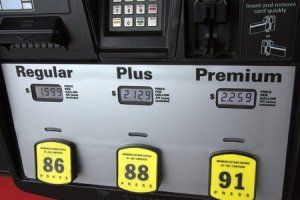87, 89, 91…What are the Differences in Fuel Grades?
May 17, 2019

When you step back to compare grades of gasoline, you will see why some fuels are cheaper than others and how certain grades affect your vehicle. Although all types of gasoline are sourced from oil, the specific treatment and chemicals added to the oil is what determines particular purpose and grade. Using the proper fuel grade in your automobile helps to ensure its efficiency and protect the motor from detonation. The following information will help you understand the differences between the available grades of fuel.
The grades of fuel
There are currently three primary grades of fuel available in the U.S. which includes regular, plus, and premium. The best fuel grade for your vehicle is based on its particular manufacturer, so there is no gain to using premium gas if the maker specifies regular.
Identifying fuel grades
Regular, plus, and premium fuel grades are all distinguished by how much octane they contain. Octane amounts indicate how volatile a particular grade of gasoline is. Regular gas carries an octane level rating between 85 and 88, with an average rating of 87. Plus grade gas carries an 88 to 90 octane level rating, with an 89 average. Premium gas comes with a 90 plus octane rating that averages out to about 92.
How different fuel grades burn
Fuels of different grades will not burn the same way. The less octane a fuel contains, the easier it burns. For modern vehicles equipped with an engine control module, the computer uses sensors to determine the optimal air fuel ratio. The computer uses a knock sensor adjust ignition timing to stop detonation. So in some cases you may get a slight boost in performance by using a higher octane fuel. Although all grades of gasoline produce similar levels of heat power, their rates of combustion can vary.
Benefits of different grades
The grade of a fuel lets you know how readily it will combust inside of your engine. Fuels with lower levels of octane usually burn faster and stronger when they are pressurized, which produces a ticking or knocking noise in your motor. Car motors that run on regular gas are designed to apply the ideal amount of pressure to prevent internal knocking sounds.
SUVs often run best on plus to premium fuels, as their motors are intended to produce more fuel compression for enhanced drivability. However, it is always best to check with the manufacturer or manual about the correct grade of fuel. There is no extra advantage to using plus or premium grades of gasoline if your automobile is designed to use a regular fuel grade.
If you would like to learn more about the different grades of fuel and how they affect your car, contact us or come by Poston Motor Company. We would be happy to talk with you about how to care for and get the most out of your vehicle. 678-455-5246
